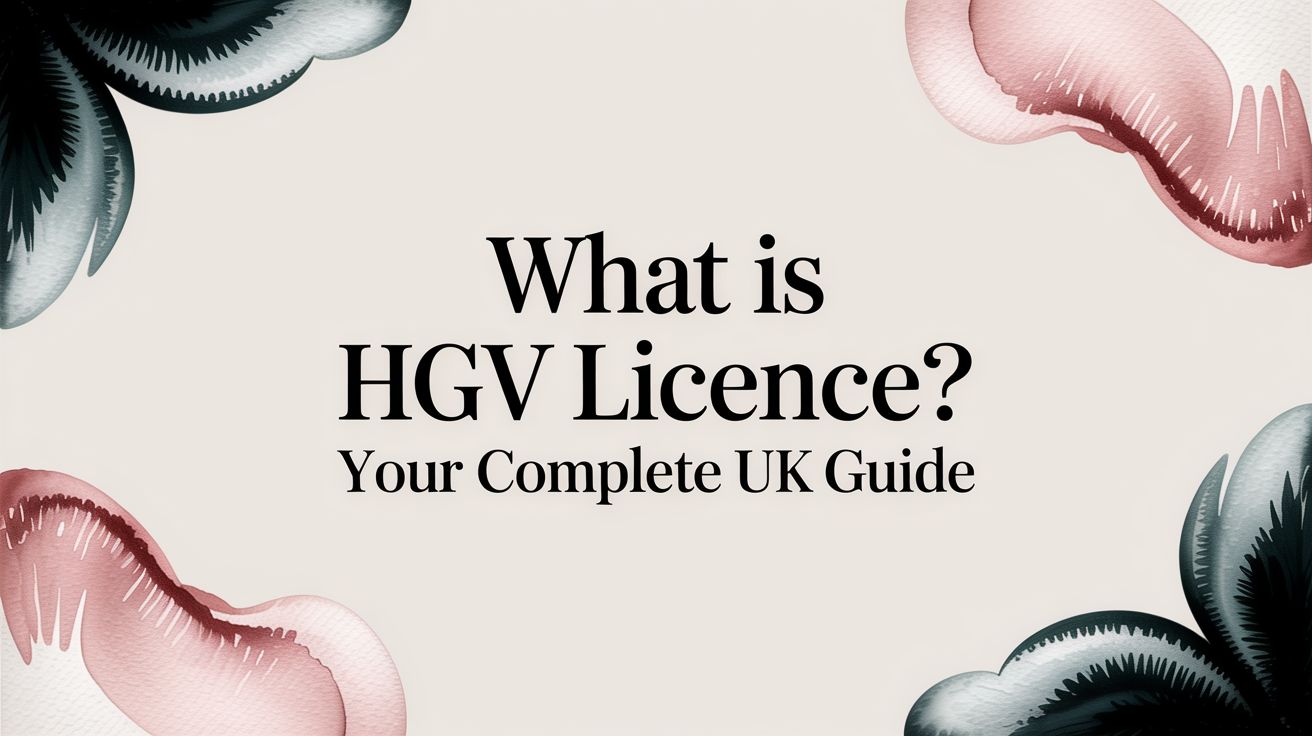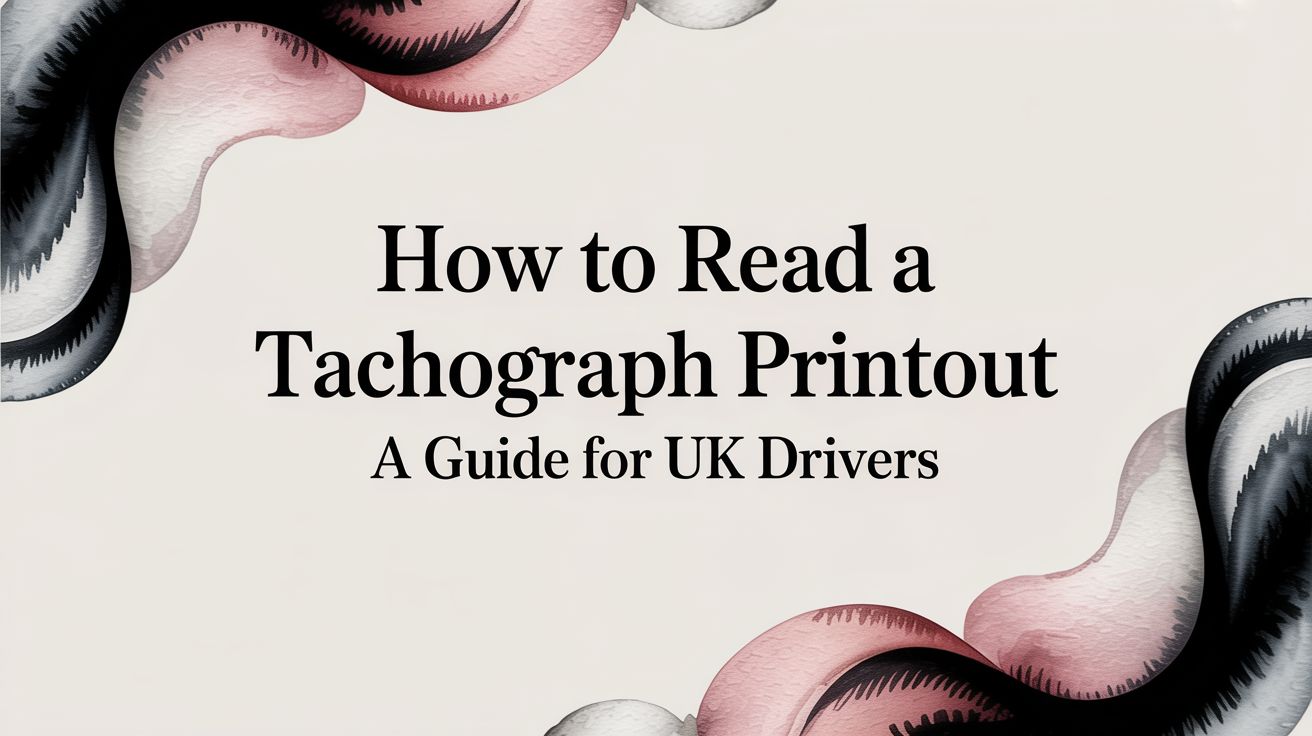Related Articles

06/02/2026
What is an HGV Licence? Your Complete UK Guide


The logistics industry plays a crucial role in keeping the UK economy running, and qualified Heavy Goods Vehicle (HGV) drivers are in high demand. If you’re considering a career as an HGV driver or simply need an HGV licence to operate large vehicles, this guide will walk you through the entire process. Whether you’re looking for job opportunities, better pay, or a flexible career, obtaining an HGV licence is a significant step. In this article, we’ll cover everything you need to know, from eligibility and costs to training and testing.
An HGV licence is a legal requirement for drivers who wish to operate vehicles weighing more than 3.5 tonnes. These licences are issued by the Driver and Vehicle Standards Agency (DVSA) in the UK and certify that the holder has met the necessary training, testing, and health requirements to drive heavy vehicles safely.
There are several types of HGV licences depending on the size, weight, and type of vehicle you wish to drive.
This is the most common type of HGV licence and allows you to drive vehicles over 3.5 tonnes but not exceeding 32 tonnes. Examples include refuse collection vehicles and delivery lorries.
An upgrade to the Cat C licence, this allows you to drive vehicles over 3.5 tonnes with trailers exceeding 750kg. It’s ideal for long-haul drivers who operate articulated lorries.
Driving an HGV without the appropriate licence is illegal in the UK. You must obtain the correct category licence for the vehicle you intend to operate. Penalties for non-compliance include fines, points on your licence, and even disqualification.
An HGV licence is your ticket to a wide range of job opportunities in the transport and logistics industry. Roles include:
HGV drivers enjoy competitive salaries. Entry-level drivers typically earn between £25,000 and £30,000 annually, while experienced drivers can earn over £40,000. Additional perks include travel opportunities, job stability, and, in many cases, flexible hours.
To apply for most HGV licences, you must be at least 18 years old. However, some exceptions exist for younger drivers participating in specialised training schemes.
A key requirement is passing a medical examination. The test, completed with a GP or approved provider, ensures you are physically and mentally fit to drive. Common assessments include:
Applicants must hold a full Category B driving licence (car licence) and meet residency criteria to apply for an HGV licence in the UK.
Begin by understanding the type of licence you need. Think about the vehicles you plan to drive and your career goals. If you’re uncertain, consulting with a training provider can help clarify your options.
You’ll need to fill out two forms:
Submit these forms to the DVLA along with your medical exam results. The provisional licence allows you to begin training and take tests.
Book an appointment with your GP or an HGV-specialist clinic for the medical test. The examination involves checking your eyesight, general health, and any conditions that might affect your ability to drive.
The theory test consists of two sections:
Prepare by using practice tests and study materials available online or through training providers.
Once you have your provisional licence, enrol in an accredited HGV training programme. Training involves both theoretical knowledge and practical driving skills, such as:
The practical test assesses your ability to operate an HGV safely. Key components include:
After passing the practical test, your licence will be updated to include the relevant HGV category. You’re now ready to start your new career!
The process usually takes 6–10 weeks. Factors such as test availability and training schedules can affect this.
Conditions like poor eyesight or epilepsy can complicate the application process. Consult a specialist if you have concerns.
Both the theory and practical tests require preparation. Many applicants benefit from mock tests and practice driving.
The costs can seem steep, but exploring funding options or payment plans can ease the burden.
No, you can only drive under supervision as part of an accredited training programme.
Yes, professional drivers must complete the Certificate of Professional Competence (CPC) in addition to their HGV licence.
There is no upper age limit as long as you meet the medical requirements.
Getting an HGV licence is a straightforward process when you know what to expect. By following the steps outlined in this guide, you can gain the qualifications needed for a rewarding career in transport and logistics. Start today, and soon you’ll be on the road to success!
Keen to learn more about getting an HGV licence? Speak to our team of advisers today and learn how HGV Learning can help you take the next step in your career!

06/02/2026

Complete the form below and we’ll contact you asap.

